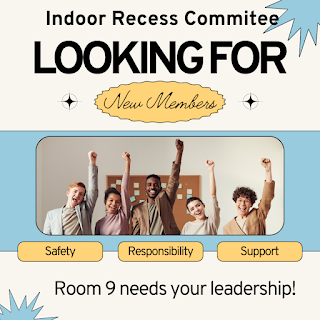Indoor Recess Time!
At the beginning of the school year, we spend a ton of time co-constructing classroom norms, helping our students get to know the learning space, developing expectations with students, and practicing different routines. One routine that I almost ALWAYS forgot about each year was teaching about Indoor Recess routines and norms. Normally I'd get "caught" during the first rain day or extreme heat day, and then would feel like I was scrambling to say a few quick things right before lunch. This didn't set my students up for success, and it made things EXTREMELY challenging for colleagues who would be supervising students during this time.
Dedicate some class time to showing where indoor recess activities are stored. Practice taking out the materials and putting away the materials. You may even need to practice "stacking" indoor recess materials if you have storage issues like I always did!
You may even elect a student-run "Indoor Recess Committee" to remind classmates of co-constructed norms and support classmates in proper clean-up & stacking procedures! One of these student leaders may even present any supervisor with a list of the classroom-created expectations at the beginning of Indoor Recess - or if time allowed, you could invite the supervisors in and have them join in this conversation! You can hype up this group by creating little graphics like I did in Canva and post them around your classroom before having this conversation. Building a little buzz is always fun!
As you co-construct norms, you may create a quick graphic or anchor chart to keep handy for Indoor Recess Days. Here are some potential signs that you may take & customize. Just like any template I ever share, I encourage you to go to FILE & MAKE A COPY so that you can customize this to fit your need.
Be sure to dedicate some class time to actually PLAYING some of the games, too. We cannot assume that every student has had prior experience with games that you may be familiar with. No, Monopoly and Twister are not "universal experiences." Even if our students didn't come to us from all over the world (which they do), they all come from different families! Many times, families will even have their own variations on rules for playing games. Be careful not to say "This is the CORRECT way to play" so as not to insinuate that their family is incorrect - you can simply say "the official rules from the game creators say..."
You may also use this time to teach about compromising or negotiating rules for games. Compromising is a great life skill, but we're not all born with these skills. They must be taught and practiced!




Comments
Post a Comment